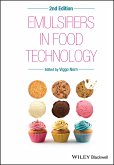Innovation and new product development are increasingly perceived as drivers of profits in the food industry. Companies are dedicating a large amount of resources to these areas and it is crucial that individuals understand how to be part of this new strategy. Food Industry Innovation School focuses on key skills needed to drive new ideas from initial concepts through to successful products on the shelf. The author argues that any individual can learn how to lead innovation within complex organizations utilizing companies? commercial and financial resources. The book focuses on the impact of single individuals on company successes. Case studies from the marketplace provide valuable examples of accomplishments and failures. Product development involves a plethora of activities such as R&D,innovation, engineering, packaging and design, manufacturing,logistics and supply chain management, as well as marketing, sales and finance, and the book addresses all these crucial functions undertaken by food companies and manufacturers of other packaged consumer goods. The learning principles and examples (based on the author's personal experience) are valid in many fast-moving consumer goods organizations and so the principles, best practices and solutions offered in the 12 chapters are relevant to a wide audience in the food industry and beyond, including those working in household products, retail, the automotive industry, computers and IT, furniture, and even media and publishing. Read more: http://www.innovationschool.co
Dieser Download kann aus rechtlichen Gründen nur mit Rechnungsadresse in A, B, BG, CY, CZ, D, DK, EW, E, FIN, F, GR, HR, H, IRL, I, LT, L, LR, M, NL, PL, P, R, S, SLO, SK ausgeliefert werden.









